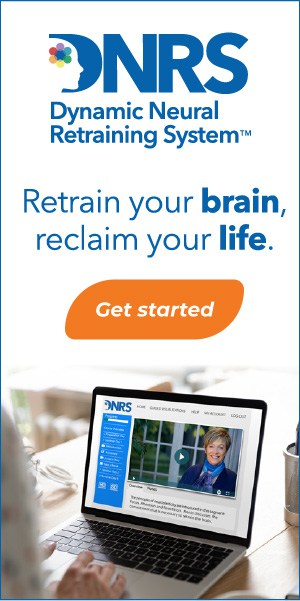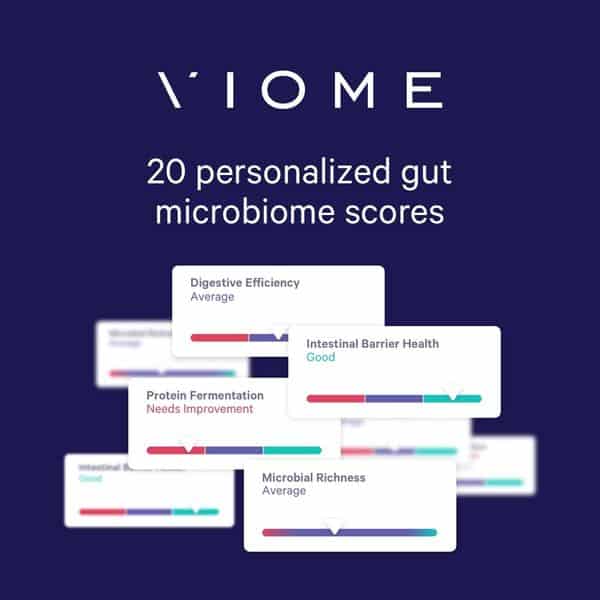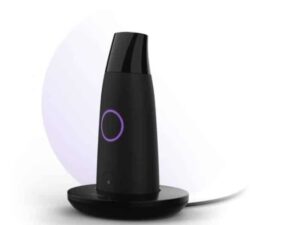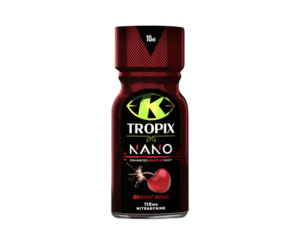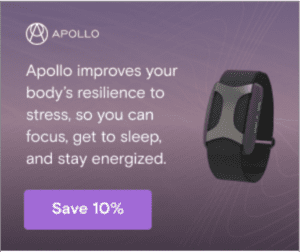Walking through the supplement aisle of your local drug store, you’ll likely encounter an overwhelming number of multivitamin options with claims of all kinds. As a certified Functional Nutrition Therapy Practitioner and nootropics expert focused on evidence-based, holistic health solutions, I often get questions about whether taking a daily multivitamin is really necessary.
In this post, we’ll analyze the latest research on multivitamin benefits and draw science-based conclusions on who might benefit from taking them.
Biohack Your Brainpower
Why Do People Take Multivitamins?
First, let’s briefly go over some background on multivitamins. Sales of multivitamins and other dietary supplements have continued to grow in the United States over the past couple of decades. A national consumer survey found that 76% of Americans take dietary supplements, with multivitamins being the most popular.
People choose to take multivitamins for a variety of reasons:
- As a nutritional safety net – To cover potential gaps or deficiencies in their diet
- For disease prevention – In hopes of reducing risk for chronic illnesses
- For increased energy and vitality – Seeking an extra boost to get through busy days
- For demographic needs – Targeted formulas during pregnancy, as seniors, etc.
The intent is generally to maintain or improve health even if their diets are already decent. But with so many products on store shelves making appealing claims, how can you decipher what’s hype vs. evidence-based?
As a holistic nutritionist, I always start by asking: Could the desired benefits from supplements be better achieved through real, whole foods instead?
Mind Lab Pro
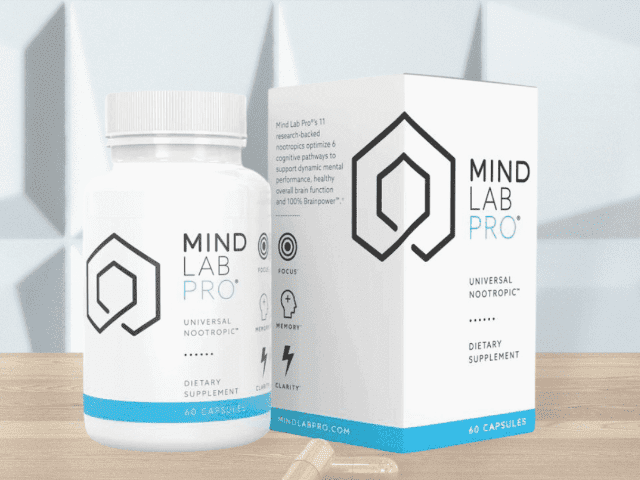
Designed to optimize cognitive functions through 11 natural ingredients that work in 6 bio-pathways
Boosts serotonin levels which can help improve your mood, sleep quality, appetite control, stress management,
Mind Lab Pro helps improve focus, memory, clarity, energy levels without relying on stimulants or artificial additives
Contains premium forms of each ingredient for enhanced potency and activity, while avoiding potential side effects associated with lower quality ingredients
Remember that no supplement will ever replace eating a balanced, micronutrient-rich diet! Lifestyle interventions should be prioritized first before considering multivitamins.
Let’s evaluate the current state of scientific research on multivitamin efficacy and safety to determine if supplementation is truly filling important nutritional gaps.
Evaluating Your Diet Quality First
Start by assessing your usual dietary intake rather than automatically turning to supplements. Track a few days of typical meals and snacks in an app like cronometer to get a micronutrient breakdown.
How do your vitamin and mineral intakes stack up to the recommended daily amounts? Are you hitting targets for nutrients that are commonly under-consumed like magnesium, vitamin D, calcium, and potassium?
You can also get bloodwork done to directly test levels of vitamins like:
- Vitamin D
- B12
- Folate
- Iron
Screening for deficiencies allows you to select targeted supplements only if warranted by clinical data.
| Nutrient | Common Dietary Sources | Risk Factors for Deficiency |
|---|---|---|
| Vitamin D | Fatty fish, egg yolks | Darker skin tones, living farther from equator, sun avoidance, obesity |
| Iron | Beef, eggs, legumes | Menstruation, frequent blood donation |
| Calcium | Dairy products, leafy greens | Lactose intolerance may reduce dairy intake |
| Folate | Legumes, citrus fruits | Alcoholism, digestive issues, certain medications |
Re-evaluate your diet if blood tests reveal a deficiency – work with a nutritionist to determine where to improve.
Signs You May Need a Multivitamin
While a poor diet is the most common cause of vitamin/mineral shortfalls, certain health conditions can also increase micronutrient needs. Digestive disorders, food sensitivities, obesity surgeries, and others may impede absorption of nutrients from food.
Your age also impacts nutritional demands – requirements for iron, magnesium, zinc, B12 and other vitamins generally increase as adults get older.
Here are some common symptoms that may be signs of deficiency warranting bloodwork:
- Fatigue, weakness
- Frequent sickness
- Bruising easily
- Poor night vision
- Loss of appetite -numbness/tingling sensations
Faraday Infrared Sauna by Sauna Space
Pregnancy and breastfeeding also spike needs for critical nutrients like folate, iron, and choline. Prental vitamins containing these micronutrients in ideal ratios are vitally important during this period.
Seniors should have B12 levels assessed regularly as low stomach acid can reduce absorption – consider supplements if deficient. Those over 50 may also require extra vitamin D via fortified foods/sunlight for bone and immune health.
So in special cases driven by health conditions or life stages increasing demands, a tailored multivitamin may help fill nutritional gaps under a doctor’s care. But does the research support supplements for overall health in healthy adults with decent diets?
Do Multivitamins Really Work?
There has been extensive research examining potential health impacts of multivitamin usage in large populations. Most studies focus on the most common formulations containing a dozen or vitamins at about 100% of recommended daily values.
Here’s what the science says so far about multivitamin efficacy:
- No effect on major disease or mortality risk – Multiple meta-analyses combining data from hundreds of thousands of people have found no protective effect of multis on cardiovascular disease, cancer risk, cognitive decline, or death from all causes over long-term usage [1].
- Inconsistent benefits for “nutrient adequacy” – Some research has found multivitamins can reduce the risk for deficiencies of micronutrients like vitamin C, E, riboflavin, calcium and others. But two high-quality studies found no improvements to overall nutrient levels or “nutrient inadequacy” [2] – meaning supplements didn’t fill important nutritional gaps. This may be because those studies were done in mostly health adults who already had decent baseline dietary intake.
- May reduce vision loss for certain age groups – Strong research indicates multivitamins can slow developing vision issues like age-related macular degeneration (ARMD) and cataracts in older adults, especially for nutrient deficient populations[3]. Targeting shortfalls with supplements provided protection that wasn’t observed in younger groups eating nutrient-rich diets.
- Can improve mood and stress in deficiency cases – Studies recruiting people with diagnosed nutrient shortfalls (ex low vitamin D or iron levels) find multivitamin usage does often correct imbalance and improve measures of mental health like vitality, mood, and perceived stress [3]. But benefits were not seen in studies excluding deficiency. So the mood/stress benefits of multis seems to apply primarily for those addressing existing nutritional gaps under medical guidance.
Based on large review studies, daily multivitamins generally don’t reduce mortality or disease risk in healthy populations according to the best current evidence. And they don’t consistently fill nutritional shortfalls.
But there are some benefits supported by research:
- Slowing age-related vision decline
- Correcting mood/stress issues related to deficiencies
These protective effects were most notable in seniors and those with suboptimal nutrient status identified through testing.
I recommend re-assessing diet quality and getting bloodwork before considering daily multivitamin usage. Determine if your demographic or health condition increases any nutritional needs not met through whole foods.
Q: I eat plenty of fruits and vegetables – do I still need a multivitamin?
A: Probably not if you are generally healthy without diagnosed deficiencies or health issues that may impair nutrient absorption. But bloodwork can verify optimal vitamin/mineral levels.
Q: Is there any downside to just taking a multivitamin to be safe?
A: Research has not found harms from standard multivitamin formulations used within recommended dosing ranges. But check with your doctor about potential interactions with medications you take.
While adequate nutrient intake is extremely important for health, the research is still inconclusive on whether daily supplementation benefits disease prevention or longevity for healthy individuals eating varied diets.
As a Functional Nutrition Therapy Practitioner utilizing evidence-based protocols, I help clients identify and address the root lifestyle causes of health issues – rather than automatically relying on supplements.
We screen for nutritional deficiencies or medication interactions warranting tailored supplementation under medical guidance. But the emphasis is always on optimizing diet quality and lifestyle habits first.
Mitozen Lumetol Blue Bars
What Should You Look for In a Multivitamin?
If your individual health profile and bloodwork indicates that a general multivitamin could help fill potential nutritional gaps, choose quality over price tag or dramatic marketing claims.
As I teach my clients, learning to read between the lines on supplement labels is a vital skill to become an informed consumer and prioritize evidence-based products.
Here’s what to look for in a high-quality multivitamin:
- Zero artificial ingredients – No chemical colorings, flavorings, preservatives or allergenic compounds
- Activated forms of B-vitamins – Like methylated B12 rather than cheaper cyano or hydroxy forms
- Contains mixed natural tocopherols – Different vitamin E types like gamma-tocopherol rather than just synthetic alpha-tocopherol
- 3rd party certified for purity – By organizations like NSF International or US Pharmacopeia
- 100% RDA for at least half the vitamins/minerals – Provides substantial % of micronutrient needs
- Provides meta-absorbable forms – Like magnesium glycinate or aspartate rather than oxide
- Eco-conscious & ethically-sourced ingredients
While there are no “miracle products” proven to cure diseases or expand lifespan, select manufacturers craft high-quality formulations you can feel good about adding as part of an evidence-based, holistic health plan.
I often recommend professional brands like Performance Lab to clients for their commitment to purity, potency, and third-party quality verification not always prioritized by mainstream retailers.
Nutritional Supplements by Performance Lab
Some critics argue the one-a-day multivitamin business model doesn’t make sense from an absorption perspective. Our bodies can only process finite amounts of nutrients effectively during digestion despite mega-doses sometimes packed into pills. Does overflow just turn into expensive urine output?
Manufacturing high-quality supplements requires investment in sourcing, testing, bioavailability research, encapsulation technologies, and more unseen costs compared to generics. I advise clients that effectiveness should supercede bargain hunting when shopping the supplement aisle.
Paying a few extra dollars per bottle for highly absorbable forms from reputable brands goes much further than 100% daily values of cheap vitamin/mineral salts providing limited benefits.
The medical field has historically been hesitant to recommend daily multivitamin usage due to the mixed data. But as research methodology and formulations improve, I foresee updated clinical guidance evolving.
If bloodwork confirms an existing deficiency or increased nutritional needs related to a health condition, condition, or stage of life like pregnancy, a doctor may advise addressing it through quality supplementation.
For those whose labwork indicates no overt shortfalls, taking targeted formulas a few times a week (like vitamin D/K2 blends) may provide adequate support without overdoing it on micro-dosing.
Testing nutrient status intermittently even if eating healthy allows you to gauge the impacts of life and lifestyle factors on your own vitamin/mineral levels year-over-year.
I cannot recommend specific brands or products to the general public without an assessment. But reach out to discuss your health background and goals if interested in guidance to the quality options available!
The Bottom Line on Multivitamin Necessity
- Standard OTC multivitamins don’t clearly reduce mortality or disease risk in healthy populations based on available research. Benefits for “nutrient adequacy” are also inconsistent.
- For seniors, those with health conditions impacting nutrient absorption, or pregnant women, addressing identified deficiencies under medical supervision may provide benefits like improving mood and slowing vision decline.
- Rather than blindly supplementing, optimize your diet first and get periodic bloodwork to gauge micronutrient status. Targeted supplementation can then fill important gaps personalized to your health profile and labs.
- If choosing to supplement with a general multivitamin, select high-quality products from reputable manufacturers meeting strict quality verification standards and using bioavailable nutrient forms.
Remember, no pills replace eating a balanced diet high in vegetables, fruit, lean proteins, fiber and healthy fats for supporting optimal wellness!
Do you take a daily multivitamin? Share your thoughts on this article and experience with supplementation in the comments below!
References
- Rautiainen S, Manson JE, Christen WG, Sesso HD. Multivitamin use and risk of cardiovascular disease: A systematic review and meta-analysis. American Journal of Clinical Nutrition. 2021. doi:10.1093/ajcn/nqab292
- Macpherson H, Pipingas A, Pase MP. Multivitamin-multimineral supplementation and mortality: a meta-analysis of randomized controlled trials. The American Journal of Clinical Nutrition. 2013;97(2):437-444. doi:10.3945/ajcn.112.049304
- Kim H, Giovannucci E, Rosner B, Cho E. Longitudinal and secular trends in dietary supplement use: Nurses’ Health Study and Health Professionals Follow-Up Study, 1986-2006. Journal of the Academy of Nutrition and Dietetics. 2014;114(3):436-443. doi:10.1016/j.jand.2013.07.039
- Block G, Jensen CD, Norkus EP, Dalvi TB, Wong LG, McManus JF, Hudes ML. Usage Patterns, Health, and Nutritional Status of Long-term Multiple Dietary Supplement Users: A Cross-Sectional Study. Annals of Internal Medicine. 2007;146(1):37. doi:10.7326/0003-4819-146-1-200701020-00007
- Chew EY, Clemons TE, Agrón E, Sperduto RD, Sangiovanni JP, Kurinij N, Davis MD. Long-Term Effects of Vitamins C and E, β-Carotene, and Zinc on Age-Related Macular Degeneration. Ophthalmology. 2013;120(8). doi:10.1016/j.ophtha.2013.01.021
- Harris E, Kirk J, Rowsell R, Vitetta L, Sali A, Scholey AB, Pipingas A. The effect of multivitamin supplementation on mood and stress in healthy older men. Human Psychopharmacology: Clinical and Experimental. 2011;26(8):560-567. doi:10.1002/hup.1237
- Gosney MA, Hammond MF, Shenkin A, Allsup S. Effect of micronutrient supplementation on mood in nursing home residents. Gerontology. 2008;54(5):292-299. doi:10.1159/000131886









